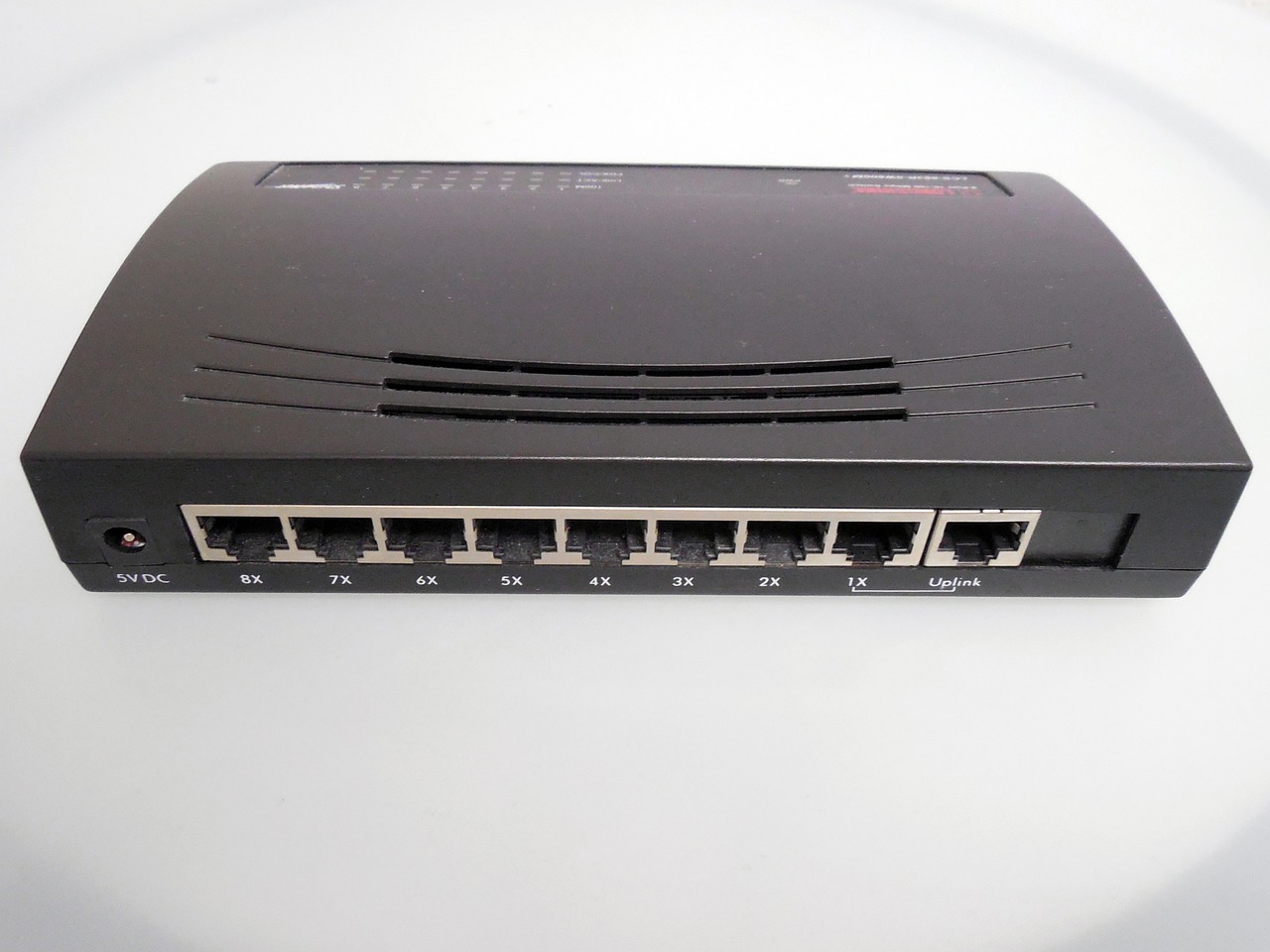The evolution of the internet is nothing short of a digital odyssey, and when we view this journey through the lens of artificial intelligence, it becomes even more fascinating. The internet, as we know it today, has transformed from a rudimentary communication tool into a complex web of interconnectedness that shapes our everyday lives. Imagine a time when sending an email was a novelty, and now, we have instant messaging, video calls, and social media at our fingertips. This remarkable transformation is marked by several key milestones:
- The advent of ARPANET in the 1960s, which laid the groundwork for modern networking.
- The introduction of the World Wide Web in the early 1990s, making the internet accessible to the masses.
- The explosion of social media in the 2000s, fundamentally changing how we communicate.
- Technological advancements such as mobile connectivity and broadband that have made the internet ubiquitous.
- Emerging issues of governance and regulation that challenge our understanding of privacy and security online.
As we delve deeper into the history of the internet, it is essential to recognise the pivotal role of artificial intelligence in shaping its future. AI technologies are not only enhancing user experiences but are also revolutionising data processing and analysis. For instance, AI algorithms can predict user behaviour, optimise content delivery, and even personalise experiences, making our online interactions smoother and more engaging. This synergy between AI and the internet is like a dance, where each partner enhances the other’s capabilities.
Moreover, the impact of the internet on society cannot be understated. It has opened up new avenues for communication, education, and commerce, bridging gaps and fostering connections across the globe. Yet, it also raises profound questions about freedom, privacy, and security. As we navigate this digital landscape, we must consider the implications of our choices and the responsibility that comes with such immense power.
In conclusion, the history of the internet is a testament to human ingenuity and the relentless pursuit of connection. As we look towards the future, the interplay between AI and the internet will undoubtedly continue to shape our world in ways we can only begin to imagine. Are we ready for what lies ahead?
Early Beginnings of the Internet
The origins of the internet can be traced back to the 1960s, a time when the seeds of a digital revolution were being sown. The most notable project was ARPANET, developed by the United States Department of Defence. This pioneering network laid the groundwork for what would eventually become the global internet we know today. Imagine a world where computers could communicate, sharing data seamlessly—this was the vision that drove early innovators.
At its core, the early internet was built on a few foundational technologies, including packet switching and the TCP/IP protocol. Packet switching allowed data to be broken into smaller packets, making it easier to send information over various routes. This was a game-changer, as it enhanced the reliability and efficiency of data transmission. The TCP/IP protocol emerged as the standard for transmitting data, ensuring that different networks could connect and communicate. Without these innovations, the internet as we know it might never have materialised.
As we delve deeper into this era, it’s essential to consider the key figures who played pivotal roles. Researchers like Vinton Cerf and Bob Kahn were instrumental in developing the TCP/IP protocols. Their work not only facilitated communication between computers but also set the stage for future advancements. The early internet was not just about technology; it was about visionaries who dared to dream of a connected world.
In summary, the early beginnings of the internet were marked by significant technological advancements and the relentless pursuit of connectivity. These foundational elements paved the way for the explosive growth of the internet in the decades that followed. As we explore further, it becomes clear that the journey of the internet is a testament to human ingenuity and the desire to communicate.
For more in-depth information, you can check out this resource on the history of the internet.

The Rise of the World Wide Web
The World Wide Web emerged in the early 1990s, marking a pivotal moment in the history of the internet. Before this, the internet was a complex tapestry of text-based commands, primarily accessed by tech-savvy individuals. However, with the introduction of the web, a new era began—one that made the internet accessible to the masses. It was Tim Berners-Lee, a British computer scientist, who laid the groundwork for this transformation by developing the first web browser and server. His vision was simple yet revolutionary: to create a space where information could be easily shared and accessed by anyone with an internet connection.
As a result, the web rapidly evolved, leading to an explosion of content and creativity. Websites began to pop up like mushrooms after rain, covering every conceivable topic. From personal blogs to corporate sites, the internet became a vibrant marketplace of ideas. This shift not only changed how we consumed information but also how we interacted with each other. Suddenly, a small business in a remote village could reach customers across the globe, while individuals could share their stories and connect with like-minded people.
To illustrate the impact of the World Wide Web, consider the following table that highlights key milestones:
| Year | Milestone |
|---|---|
| 1991 | Tim Berners-Lee launches the first website |
| 1993 | Introduction of the Mosaic web browser |
| 1995 | Amazon and eBay launch, changing online shopping forever |
| 2004 | Facebook is founded, revolutionising social networking |
In essence, the rise of the World Wide Web can be likened to the invention of the printing press; it democratized information and transformed society. The ability to share knowledge and communicate instantly has reshaped our cultural landscape. As we look back, it’s clear that the web has not only changed how we access information but has also fostered a sense of community and global interconnectedness.
For further reading on this fascinating subject, you might want to check out W3C’s History of the Web, which provides a comprehensive overview of the web’s evolution.
Impact of Social Media
Social media has undeniably revolutionised the way we communicate and share information. Platforms like Facebook, Twitter, and Instagram have transformed our social interactions, creating a digital space where opinions can be shared instantly and globally. Imagine a world where news travels faster than the speed of light, where a single tweet can spark a movement or a viral meme can change public perception overnight. This is the power of social media!
In just a few years, social media has evolved from simple networking sites to complex platforms that influence politics, culture, and even economies. For instance, during significant events like the Arab Spring, social media served as a critical tool for organisation and communication, showing its potential to drive social change. The ability for individuals to connect with like-minded people across the globe has fostered a sense of community that transcends geographical boundaries.
However, with great power comes great responsibility. The also raises concerns about misinformation and privacy. The rapid spread of fake news can mislead millions, and the data we share can be exploited in ways we might not even realise. It’s crucial to navigate this digital landscape carefully, understanding both its benefits and its pitfalls.
To illustrate the profound influence of social media, consider the following statistics:
| Platform | Active Users (in billions) |
|---|---|
| 2.91 | |
| YouTube | 2.29 |
| 1.39 | |
| 0.45 |
In conclusion, the is profound and multifaceted. It has reshaped our communication landscape, allowing for the rapid exchange of ideas and information. Yet, as we embrace this digital evolution, we must remain vigilant about its implications and strive for a responsible approach to our online interactions. For further insights into the effects of social media on society, you can visit Pew Research.

Advancements in Internet Technology
The evolution of the internet has been nothing short of astonishing, particularly with the advancements in technology that have transformed our online experiences. From the early days of dial-up connections to the lightning-fast speeds we enjoy today, each leap in technology has brought us closer together. Remember the days when waiting for a webpage to load felt like an eternity? Well, thanks to innovations like broadband and fibre-optic networks, those days are long gone!
One of the most significant breakthroughs has been the advent of mobile connectivity. With the rise of smartphones, the internet is now available at our fingertips, allowing us to stay connected wherever we go. This shift has not only changed how we access information but has also revolutionised how we communicate and interact with each other. In fact, studies show that over 50% of global web traffic now comes from mobile devices, highlighting just how crucial this technology is to our daily lives.
Moreover, advancements in internet infrastructure have paved the way for the Internet of Things (IoT). This technology connects everyday devices to the internet, enabling them to communicate and share data. Imagine your fridge notifying you when you’re low on milk or your thermostat adjusting the temperature based on your preferences. These innovations are not just futuristic fantasies; they are becoming a reality, making our lives more convenient and efficient.
However, with great power comes great responsibility. As we embrace these advancements, we must also consider the implications for privacy and security. The more connected we become, the more vulnerable we are to cyber threats. Thus, it’s essential to stay informed and take necessary precautions to protect our personal information.
In summary, the advancements in internet technology have been transformative, enhancing connectivity and accessibility while also presenting new challenges. As we look to the future, it’s clear that the internet will continue to evolve, and we must be prepared to adapt alongside it.
| Technology | Impact |
|---|---|
| Broadband | Faster internet speeds, improved online experiences |
| Mobile Connectivity | Access to the internet on-the-go, increased engagement |
| Internet of Things | Smart devices, enhanced convenience and efficiency |
For more insights into the future of internet technology, you can visit TechRadar.
Internet Governance and Regulation
The internet is often seen as a vast, unregulated frontier, but the reality is far more complex. Governance and regulation of the internet are crucial to ensuring that it remains a safe and equitable space for all users. With the rise of various stakeholders, including governments, private companies, and civil society, the challenge lies in balancing freedom of expression with the need for security and privacy.
One of the primary concerns in internet governance is the issue of censorship. Different countries have different laws regarding what can and cannot be shared online. For instance, while some nations champion free speech, others impose strict regulations that can limit access to information. This disparity raises questions about the universality of human rights in the digital age.
Moreover, the rapid advancement of technology brings forth new challenges. As the internet evolves, so too does the need for updated regulations to address issues such as data privacy, cybercrime, and misinformation. For example, the introduction of the General Data Protection Regulation (GDPR) in the European Union has set a precedent for how personal data is handled globally. This regulation not only protects users but also holds companies accountable for their data practices.
To navigate this complex landscape, various frameworks and organisations have emerged. The Internet Corporation for Assigned Names and Numbers (ICANN) plays a vital role in managing domain names and IP addresses, while the Internet Governance Forum (IGF) provides a platform for discussing policy issues. These entities aim to foster collaboration among stakeholders and promote best practices in governance.
As we look to the future, the question remains: how can we ensure that the internet remains a space for innovation and free expression while also protecting users from harm? The answer lies in a collaborative approach that involves all stakeholders working together to create a balanced and fair governance structure.
| Stakeholder | Role |
|---|---|
| Governments | Regulate and legislate internet use |
| Private Companies | Provide services and platforms |
| Civil Society | Advocate for user rights and freedoms |
In conclusion, the governance and regulation of the internet are essential for ensuring that it serves as a tool for empowerment rather than oppression. As we continue to navigate this digital landscape, it is imperative that we engage in ongoing dialogue and collaboration. For further insights on this topic, you can explore resources such as the ITU Internet Governance page.

The Future of the Internet
The future of the internet is not just a mere continuation of its past; it’s a transformative journey that promises to reshape our lives in ways we’ve yet to fully comprehend. As we look ahead, several key trends are poised to influence how we interact with this vast digital landscape. For instance, the integration of artificial intelligence into everyday applications is expected to enhance user experiences, making them more intuitive and personalised. Imagine a world where your online interactions are tailored to your preferences, almost as if the internet knows you personally!
Moreover, the Internet of Things (IoT) is set to revolutionise our homes and cities. With billions of devices connected to the internet, from smart refrigerators to traffic lights, the potential for efficiency and convenience is staggering. However, this interconnectedness brings forth challenges, particularly in terms of data privacy and security. How do we protect our personal information in an increasingly connected world?
In addition, the concept of decentralised internet is gaining traction. This model, which aims to distribute control away from central authorities, could empower users and enhance freedom of expression. Yet, it raises significant questions about governance and regulation. Who will ensure that this new internet remains a safe space for all?
Lastly, as we delve into the future, we must consider the role of 5G technology. This next-generation network promises lightning-fast connectivity, paving the way for advancements in virtual reality, augmented reality, and beyond. The possibilities are endless, and the implications for industries such as education, healthcare, and entertainment are profound.
As we stand on the brink of this new era, it’s essential to engage in discussions about the ethical and societal impacts of these changes. The internet’s future is not just about technology; it’s about how we, as a global community, choose to shape it. Let’s embrace the challenges and opportunities that lie ahead!
Frequently Asked Questions
- What was the first version of the internet?
The first version of the internet was ARPANET, developed in the 1960s. It was a project funded by the U.S. Department of Defense and aimed to facilitate communication between various research institutions.
- Who invented the World Wide Web?
The World Wide Web was invented by Tim Berners-Lee in the early 1990s. His creation made the internet much more accessible to the general public, turning it into a user-friendly platform.
- How has social media changed communication?
Social media has transformed communication by allowing people to share information instantly and connect with others around the world. Platforms like Facebook and Twitter have created new ways for individuals to engage and interact.
- What are some recent advancements in internet technology?
Recent advancements include the widespread adoption of broadband and mobile connectivity, which have greatly improved internet accessibility and speed for users globally.
- What challenges exist in internet governance?
Internet governance faces challenges related to freedom of expression, privacy concerns, and security issues. Balancing these interests while ensuring a safe online environment is a complex task.
- What does the future hold for the internet?
The future of the internet looks promising, with trends pointing towards increased integration of AI, the Internet of Things, and further advancements in connectivity that will enhance our daily lives.


